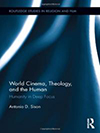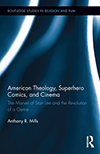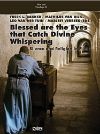- Author(s): Andrew J. Ford
- When: 1985-04
- Where: University of Richmond
The pastoral, whether in painting, music, literature, or film, has always attempted to capture that fleeting moment in history, real or unreal, where man is autonomous. The pastoral life occurs only after man has gained a considerable amount of control over nature and before he has found himself controlled by his fellow man or by those common evils made real and specific by civilization. In other words, the pastoral tries to capture or create that period in history where man has conquered the wilderness in some major way, usually by farming or animal herding, but has not yet become involved in the building of cities and is not, therefore, subject to what the sheriff in Stagecoach sarcastically calls "the blessings of civilization." It is not surprising to most readers to say that the creation of these pastoral stories always take place in a civilized world. However, it would seem unusual to most to say that the characters and places presented in such works benefit in some major way from the civilized world which has created them, whether this benefit be ideological, social, or even financial. This is because the pastoral life is always seen as the opposite of life in the city. However, the people and settings within the pastoral are always placed on the crest of the wave of a civilication in order to stay in that ideal, fleeting moment of perceived personal autonomy where certain benefits of civilization may be assimilated into the world of the pastoral without that world being exposed too greatly, if at all, to the evils of civilization. In this way, the pastoral is dependent on civilization. It defines itself either by taking from civilization or by reacting against it. In both cases, it cannot claim to be a way back to a simpler life, for that simpler life, if it ever occurred, is not the one portrayed by the pastoral.








